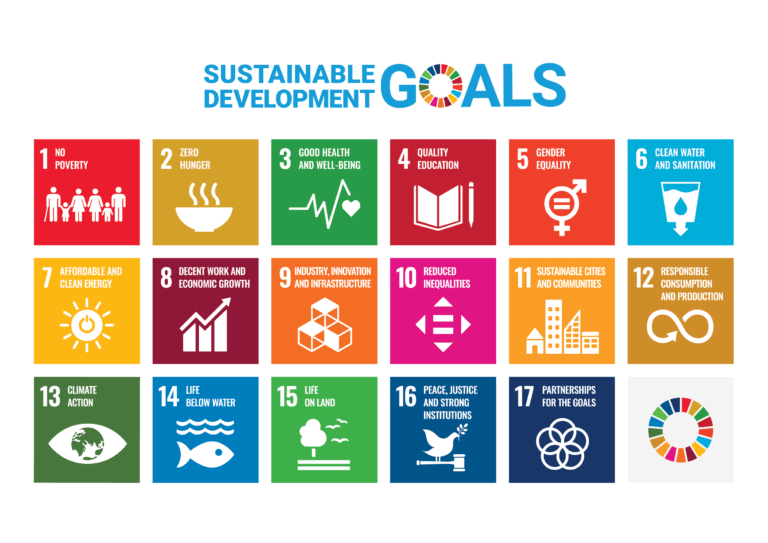
Sustainability/CSR/ESG
Sustainability/CSR/ESG
Let’s all row in the same direction. The world needs more seafood – wild and farmed. Properly growing the supply is a big task that depends on all parts of the value chain.
Why does sustainability matter? It’s about preserving resources, yes. Without them, we won’t have an industry in the future. Seafood is vital, addressing a host of society’s needs. (See the contributions page). Equally important, best practices have direct economic benefits.
Full benefit realization requires a comprehensive strategy for procurement, sales and marketing. A strategy embracing not just food safety, quality and price, but also improver programs, certification, ESG policies, supplier performance monitoring, verification and continuous improvement.
Producers, buyers and sellers that effectively demonstrate their commitment to resource stewardship and social justice can translate that into:
⇒ Positive Brand Image * Market Opportunities * Customer Retention
* Business Continuity * Due Diligence * Points of Differentiation – and more.
Such an approach can enhance confidence in the supply chain, sales and reputation at the company, community, and country levels.
Growing the verifiably responsible seafood supply becomes a driver for long term success.
Particularly given the transformative atmosphere we are in, which includes:
Complexity of Scope
Proliferation of - Initiatives, Collaborations, Improver Programs
Rising Consumer Demand
Negative Publicity
Expanding Regulations
- Sustainability/CSR/ESG
Complexity of Scope
Across the marketplace, capture fisheries, aquaculture and feed, we have topics that impact everyone – FIPs, AIPs, RFMOS, animal welfare, plastics, ghost gear, feed and marine ingredients, water quality, bycatch, FCR, FFIF, GHG emissions, biosecurity, IUU, biodiversity, and so on.
Then there’s the social piece, such as human trafficking, child labor, bonded/forced labor, worker voice and more. All of this has led to a plethora of initiatives to drive improvements.
Proliferation of Initiatives, Collaborations, Improver Programs
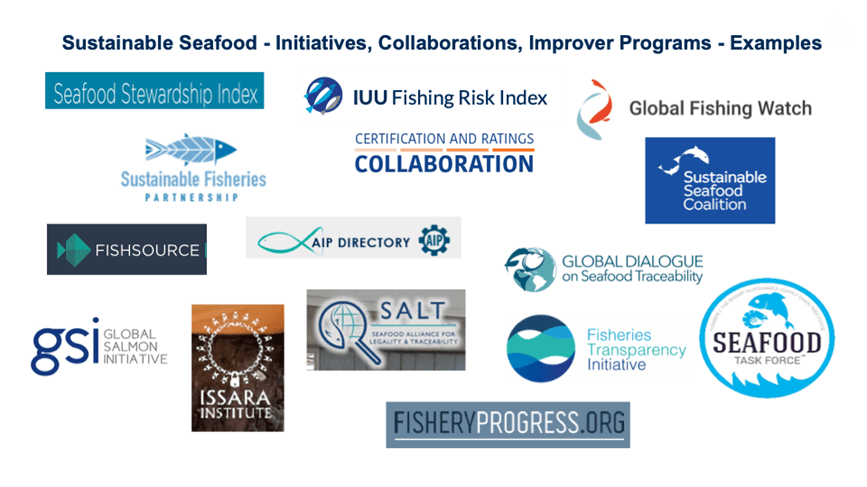
Consumer Demand
Consumers increasingly want to know more about the food supply so as to make responsible
purchasing decisions. Here’s some international and US statistics showing the clear trends:
Internationally:
“In an independent survey of attitudes to seafood
and ocean health carried out by GlobeScan in 23
countries and involving 25,000 people, amongst the key
findings…..almost three-quarters (73%) of consumers
surveyed believe that people should eat seafood from
sustainable sources, up from 65% compared with 2 years ago”.
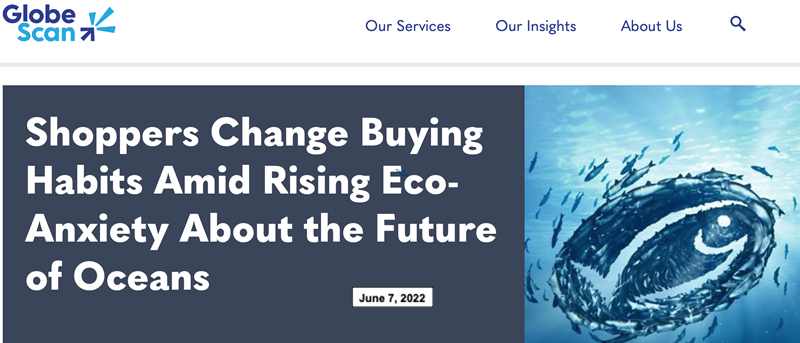
United States:
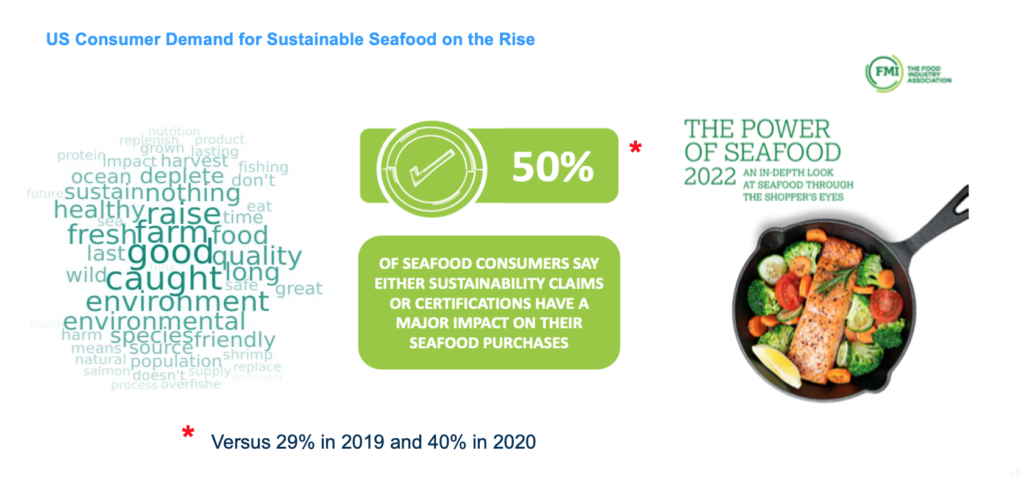
Negative Publicity
Buyers and suppliers are having to do more and be transparent about it. Increasing scrutiny from environmental and human rights groups and the media are fueling concerns. Here’s but a few reports from 2020-2024 alleging abuses across all aspects of the seafood value chain (retailer, fishing vessels, processing, farming and fishmeal/aquatic feeds):



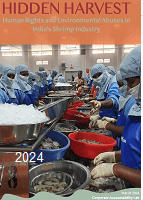

More Regulations
To address this, besides voluntary initiatives, there are a number of existing and proposed regulations
aimed at sustainability, IUU, human trafficking and false or misleading product claims, such as:
SIMP, State Department Trafficking in Persons Report, etc in the US
The “Corporate Sustainability Due Diligence Directive” and the “Green Claims Directive”, etc
in the EU.
“Domestic Trade of Specific Marine Animals and Plants Act”, etc in Japan
At Seafood Collaborators, we offer value to our clients by working together to craft or augment sustainability programs to meet the above challenges and promote and differentiate your business. Whether you call it sustainability, Corporate Social Responsibility or Environmental Social and Governance, we can help you refine, communicate and promote your initiatives effectively.
Systems, policy, comprehensive solutions – development, assessment, training or consultation on:
• Environmental stewardship and more (IUU, FIPs, animal welfare, etc.)
• Social responsibility (human trafficking, bonded and child labor, worker voice, etc.)
• Procurement/ethical sourcing
• Compliance assessment and recommendations
• Organizational representation or liaison
• SDG goals/strategy
• Messaging – effectively communicating ESG as part of your sales strategy
• Training, and more
If you could use help on one of these topics, all of them, somewhere in between, or simply aren’t sure, contact us and let’s explore the options.
